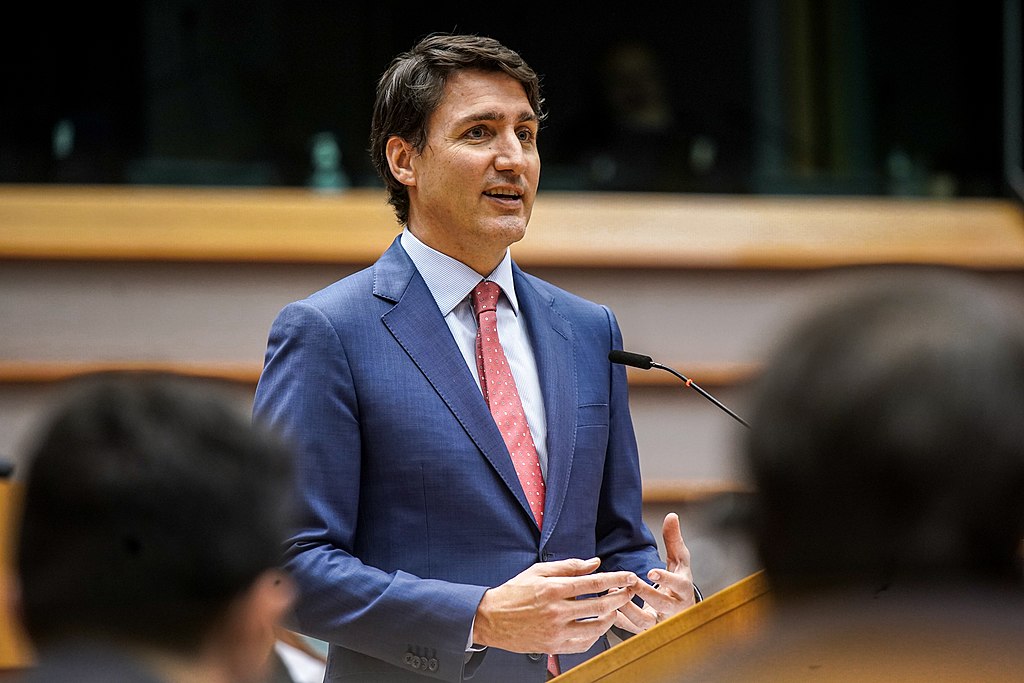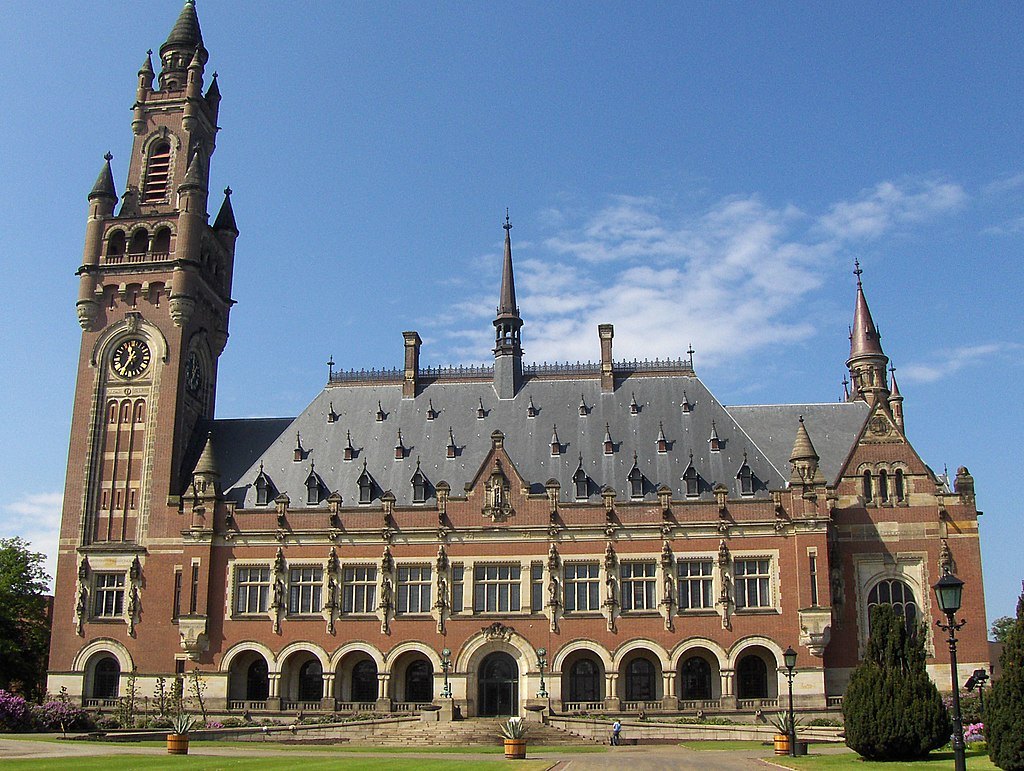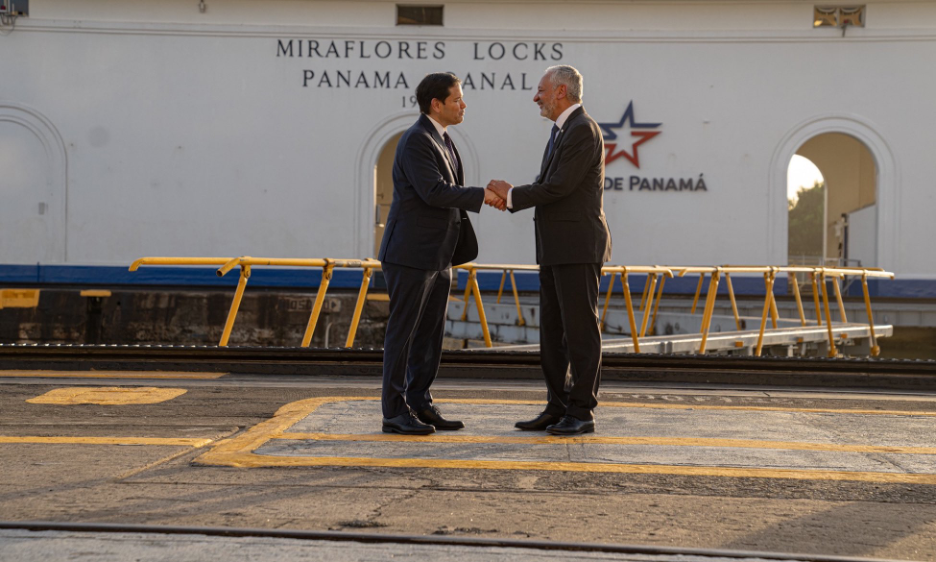Canada’s New Sanctions Against Iran: To List or Not to List
In our assessment, targeted sanctions on Iran are more likely to have an impact than is designating the IRGC as a terrorist entity.

Published by The Lawfare Institute
in Cooperation With

The government of Canada announced on Oct. 7 that it will impose new sanctions on Iran’s Islamic Revolutionary Guard Corps (IRGC) under the Immigration and Refugee Protection Act (IRPA) and the Special Economic Measures Act (SEMA). In the following days, Canada added other individuals, including Iran’s former foreign minister, Javad Zarif, to the list of sanctioned individuals. The government also announced that it would be restricting transactions to or from Canada with any IRGC entity (individual, company, or organization). This is a measure likely to be enforced through an amended ministerial directive under the Proceeds of Crime (Money Laundering) and Terrorist Financing Act (PCMLTFA). This will not satisfy many critics, who had been advocating for Canada to designate the IRGC as a terrorist entity under the Canadian Criminal Code. That said, targeted measures under SEMA, IRPA, and the PCMLTFA are more likely to have an impact on Iran’s nefarious activities than the more blunt and, in practice, unenforceable designation under section 83.05 of the Criminal Code.
Under section 35(1) of the IRPA, there are five broad bases on which a foreign national may be deemed inadmissible to Canada for “violating human or international rights.” Two of those grounds are implicated by the government’s latest moves.
First, under section 35(1)(d), a person is inadmissible to Canada for being a person, other than a permanent resident, who is currently the subject of an order or regulation made under SEMA. Since Oct. 3, the Governor in Council (essentially the Cabinet) has twice amended and expanded the Special Economic Measures (Iran) Regulations to capture not only those who contributed to Iran’s nuclear program and the IRGC (and their family and associates) but also persons who have “participated in gross and systematic human rights violations in Iran.” The regulations also now include entities and persons listed for “gross human rights violations,” including the IRGC Cyber Defence Command, the Ministry of Intelligence and Security, and the Morality Police, and lists additional persons for grave breaches of international peace and security. We should expect to see additional names and entities in the weeks to come.
The second ground implicated by Prime Minister Justin Trudeau’s announcement is more remarkable. Under section 35(1)(b) of the IRPA, a permanent resident or foreign national is inadmissible if they are “a prescribed senior official in the service of a government that, in the opinion of the Minister, engages or has engaged in terrorism, systematic or gross human rights violations, or genocide, a war crime or a crime against humanity.” As far as we have been able to determine, only nine regimes dating back to 1969 have ever received such a designation. The list includes the Taliban from 1996 to 2001, the government of Rwanda from 1990 to 1994, and the Bosnian Serb regime between 1992 and 1996. Trudeau announced on Oct. 3 that the minister of public safety intends to add the Iranian regime, including the IRGC, to this list. Importantly, this listing will not capture all members of the IRGC nor all employees of the Iranian government. Current guidelines specify that only those who hold or held a senior position within the regime or military, or those able to exert significant influence on the exercise of governmental power, shall be inadmissible. That said, under the same guidelines, anyone in the top 50 percent of the IRGC could qualify as “senior.” The minister of public safety has not yet formally added Iran to the list and, as such, the exact scope remains unknown; the prime minister, however, stated that he expects this designation could bar more than 10,000 Iranians from Canada.
While these steps are certainly extraordinary, Canada had already imposed significant restrictions on economic activities with Iran, including any facilitation of or support for the country’s proliferation activities, dealing in property, facilitating transactions, providing financial services with or for any senior official in the IRGC (or their family or associates), or entities associated with them. In our assessment, together these targeted measures are more likely to have an impact than is designating the IRGC as a terrorist entity under the Criminal Code, though both the official opposition and activists have called for that designation in recent weeks.
The U.S. designation of the IRGC as a foreign terrorist organization (FTO) raised similar issues due to the “redundancy of the existing American sanctions regime,” as the intended restrictions were already in effect due to the prior designation under Executive Order 13224 of the IRGC, its Quds Force, and the Iranian intelligence ministry as “specially designated global terrorist entities.” Further, the function of the FTO designation to limit immigration of IRGC members had no effect, as the Trump administration had already banned Iranians from entering the United States. While it represents a powerful symbol, a Criminal Code listing is also a blunt tool that would, in this instance, be largely unenforceable and create substantial second-order consequences. Most significantly, every single IRGC member, even low-ranking soldiers or those serving in administrative positions, could conceivably be participating in the activities of a terrorist group, an offense under Canadian law. Trying to identify every member who ever enters the country, build a criminal case, and bring terrorism charges would create a major burden for Canada’s national security, intelligence, and legal communities. Trying to carve out exemptions, as some proponents suggested, would not resolve this problem. In practice, implementing these exemptions would similarly represent a major drain on already overstretched resources. And as the example of Afghanistan has amply demonstrated, there is little political will to engage in the messy business of carving out exemptions to Canada’s terrorist list.
Moreover, and perhaps more importantly, it is inconsistent with Canadian criminal law to designate the IRGC a terrorist organization. The Criminal Code permits the listing of an entity as a terrorist group if it “has knowingly carried out, attempted to carry out, participated in or facilitated a terrorist activity.” Per section 83.01, however, terrorist activity does not include “activities undertaken by military forces of a state in the exercise of their official duties, to the extent that those activities are governed by other rules of international law.” Importantly, under this exception, those official duties need not be consistent with international law. For the same reason, the listing of the IRGC Quds Force (a military unit) by the Conservative government in 2012 is also legally dubious.
In any event, Canadian sanctions on their own will not lead to changes in Iran’s foreign or domestic policies. But these new sanctions are noteworthy for two reasons. First, even if Canadian actions alone will not force behavioral change from the Iranian regime, the cumulative impact of sanctions by American allies and partners can force a change in Iran’s cost-benefit calculus. We have already seen pushback from Iran on sanctions imposed by Europe, for example. Second, targeted sanctions—provided they are enforced, a point we return to below—stand a better chance of countering Iran’s damaging activities inside Canada. These sanctions should help to prevent Iran from using Canada as a base to further their proliferation activities, store their illicitly acquired funds (often in violation of sanctions or through corruption), and conduct foreign interference (including pressuring the Iranian-Canadian diaspora, many members of which report being intimidated by regime-linked thugs to curb their human rights activism).
Regardless of how Canada sanctions Iran (whether through the Criminal Code listing process, the IRPA, the SEMA, or ministerial directives under the PCMLTFA), implementation and enforcement of those sanctions remain a fundamental challenge. The private sector, such as banks and money transfer services, are on the front line of satisfying many of these sanctions. These institutions have often been critical of the government’s sanctions, arguing that Global Affairs Canada provides insufficient information to effectively identify restricted clients, making it hard to implement the sanctions without impacting other clients who might share the same name as an individual listed under these mechanisms.
Additionally, illicit actors like the IRGC are well known for their ability to circumvent sanctions, as they are well versed in sophisticated money-laundering and obfuscation techniques. Without a robust sanctions investigations capability, Canada’s sanctions regime will remain toothless. That is why the government’s announcement that it will also invest $76 million to boost its sanctions capacity is crucial to the success of this policy. Generating capacity is easier said than done, however, and in this field, capacity cannot be measured accurately for several years. Staff with the proper background have to be hired, receive security clearances (a backlogged process that can often take more than 18 months), and be trained for highly technical and skilled positions. Even in cases where trained financial investigators are re-deployed from other priorities, it is unlikely that there will be enough additional staff to make a meaningful contribution across Canada’s sanctions regime.
Nevertheless, we believe Canada’s efforts to sanction the IRGC represent an important step forward. The government’s announcements likely will not impact Iran’s foreign policy; if implemented, the sanctions on Iran will help position Canada to more effectively counter Iran’s various activities that threaten Canada’s national security. Moreover, Canada has often frustrated its closest allies, including the United States, with its limited ability and willingness to act in this regard; actually enforcing these new sanctions against Iran could therefore improve its standing with allies. Nevertheless, this would represent only a first step: These sanctions still remain far from a comprehensive solution to the decades of neglect of all kinds of financial crime and foreign interference in Canada as well as a general lack of implementation and enforcement capabilities in this domain.







